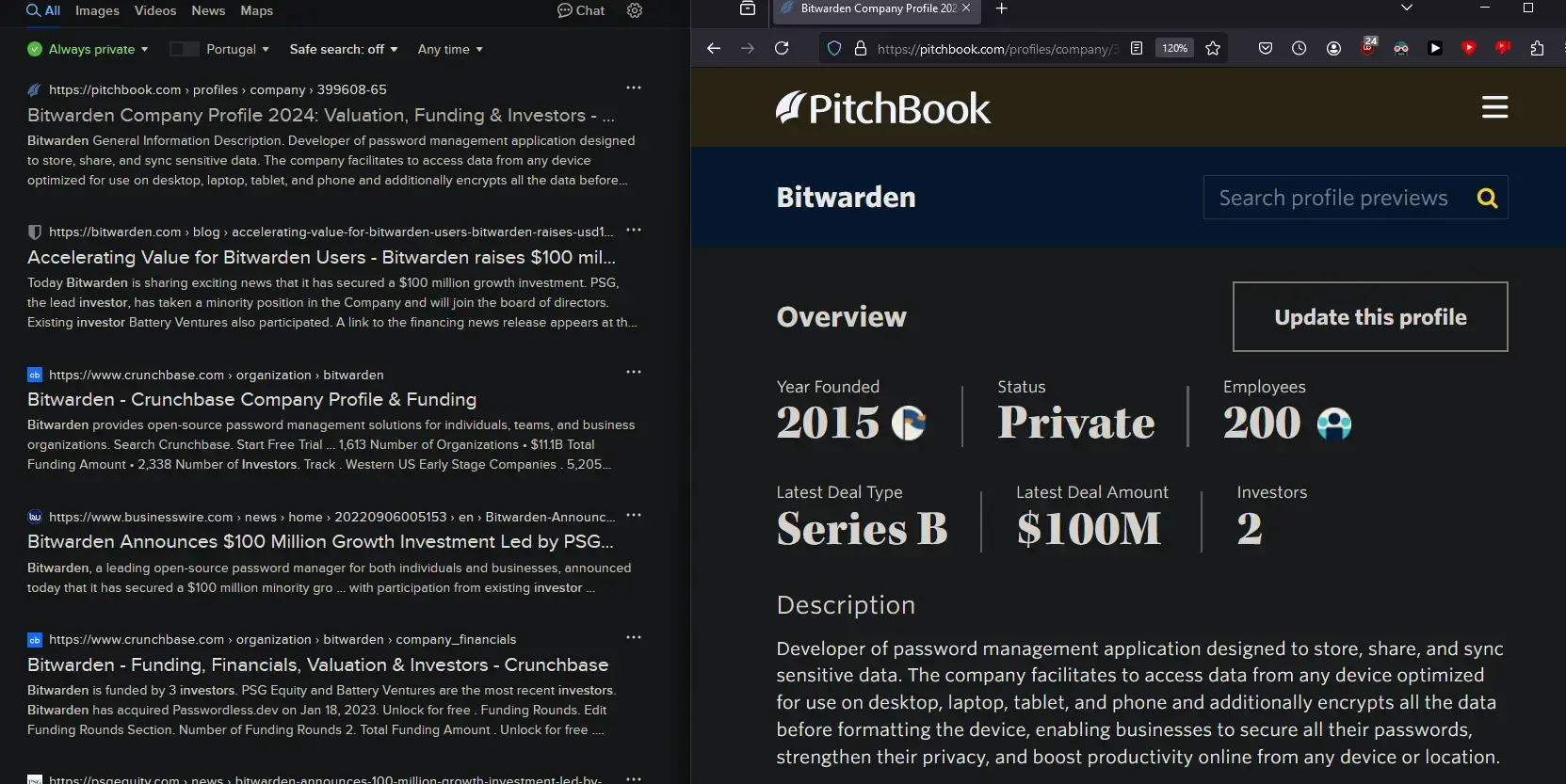To anyone promoting Affinity, they've sold out to Canva, a Venture Capital fueled mega corp looking for a public offering. Enchittification is inevitable.
Please look for FOSS alternatives instead.
To anyone promoting Affinity, they've sold out to Canva, a Venture Capital fueled mega corp looking for a public offering. Enchittification is inevitable.
Please look for FOSS alternatives instead.
I'm not thoroughly aware of their dealings, but these amounts of private investment aren't going to pay for themselves. If you raise 100 million, investors typically want a billion back, or more.
From the looks of it, Bitwarden might've tried to go with the Open Source model to get free development resources, trust (because it's an open source PASSWORD manager), and general goodwill. But now that they've deemed that got enough of a market share (or investors are starting to breathe down their necks), it's time to start raising the walled garden.
Even if they claim after the fact that it was a "Bug" that the client couldn't be built without their proprietary sdk. The very fact one exists is a bad enough sign, specially when its influence is spreading.
VC is a devil's bargain. Raising VC money is NEVER a good sign.
I wonder~ I wonder~ I wonder whyyyy...

One very much agrees, the ideals of socialism are certainly interesting. The current model is a bit of a joke, but it is the world we live in, and we have to shift from the status quo if strive towards other ways of doing things.
But moreover, if the system isn't owned by an organized body whose members chosen by the people. Then who owns it? Who operates it? Who makes the calls on what decisions ought to be made? The people can demand change, but someone needs to heed that change and delegate workers to do the change.
Modern governments (mainly democracies), in THEORY are supposed be a representative of the people. The people vote for politicians that supposedly want the same they do. Law is written, bodies are created and demolished and so the wheels of society spin.
Problem is that accumulation of wealth opens the door by buying the mouths of democracy. If you have friends in mass media, half the work is already done. Humans are lazy and unlikely to act upon politics unless they are directly threatened (and even then, not that frequently)
Again, I agree. It's just hard to picture a different world. Power generally works best when it's distributed, but how exactly it's destributed is critically important, as well as the mechanisms that ensure that it its purpose is not so easily perverted.
This is actually an interesting proposal. In fact, many utilities went the way of nationalization like water and electricity. Searching the internet, socializing and ensuring a fair market are all also things which could in theory be nationalized given they fulfill a basic need.
Of course, as they are, they would grant whichever government they were given untold power over the entire internet and our lives. Which seems rather... unbalanced. Moreover, no government should retain that right given the internet transcends borders. No one owns all of it.
Letting the free market run its course with no breaks clearly didn't work particularly well either.
Perhaps a third option? Instead of one government ruling all of it. Perhaps they were to be owned by a supranational body where several governments can propose and discuss changes/regulation and keep balances on each other? UN style? Worthy of discussion.
If anyone has other ideas I'd love to hear them.
PS: (Also, when one suggests nationalizations such as this, one does not intend for a nationalized framework to be the ONLY one. Alternatives brought upon by the free market would still certainly compete with any such services.)
The one owned by the state.
I've been tired of "modern" security doing nothing but annoy people. Recently, a Portuguese bank "innovated" by exclusively allowing login only on a mobile device. Yes, a clean web browser with 3FA is not "secure" enough, has to be done on a mobile device. Clearly, desktop PCs are too insecure to conduct transactions.
Therefore, because one does not trust their mobile device. One simply spun up a clean Pixel VM, shared my data with Google and just did their work there. Peak security.
I love it when marketing manages to spin Armageddon levels worth of copyright infringement into "spirit of the law" just because a program is magically called "AI". Machine Learning is just pattern recognition software.
Software that runs on data assembled from petabytes of copyrighted information... And then promptly resold to us.
We may decide later on if it's okay to do this. But I'm pretty sure that if it wasn't for the labels we'd have legal WW3 happening right about now.
Oh ho... No, you're not the only one I'm afraid. It was fine until a couple hours ago, the newest comments confirm it so. Not sure what's going on.
Hopefully Ross figures it out and it goes back up soon. Thanks for the interest!
EDIT: It's back up.
Hey folks, just sharing the message. I believe it's related to piracy as it frequently comes into contact with the preservation of media. As whatever is DRM Free and capable of working offline, is effectively able to last indefinitely.
If you're European and eligible, please consider.
Cheers
Off the top, Krita and Inkscape. Haven't transitioned yet, but I have ceased receiving updates. Next OS workflow will no longer involve affinity.